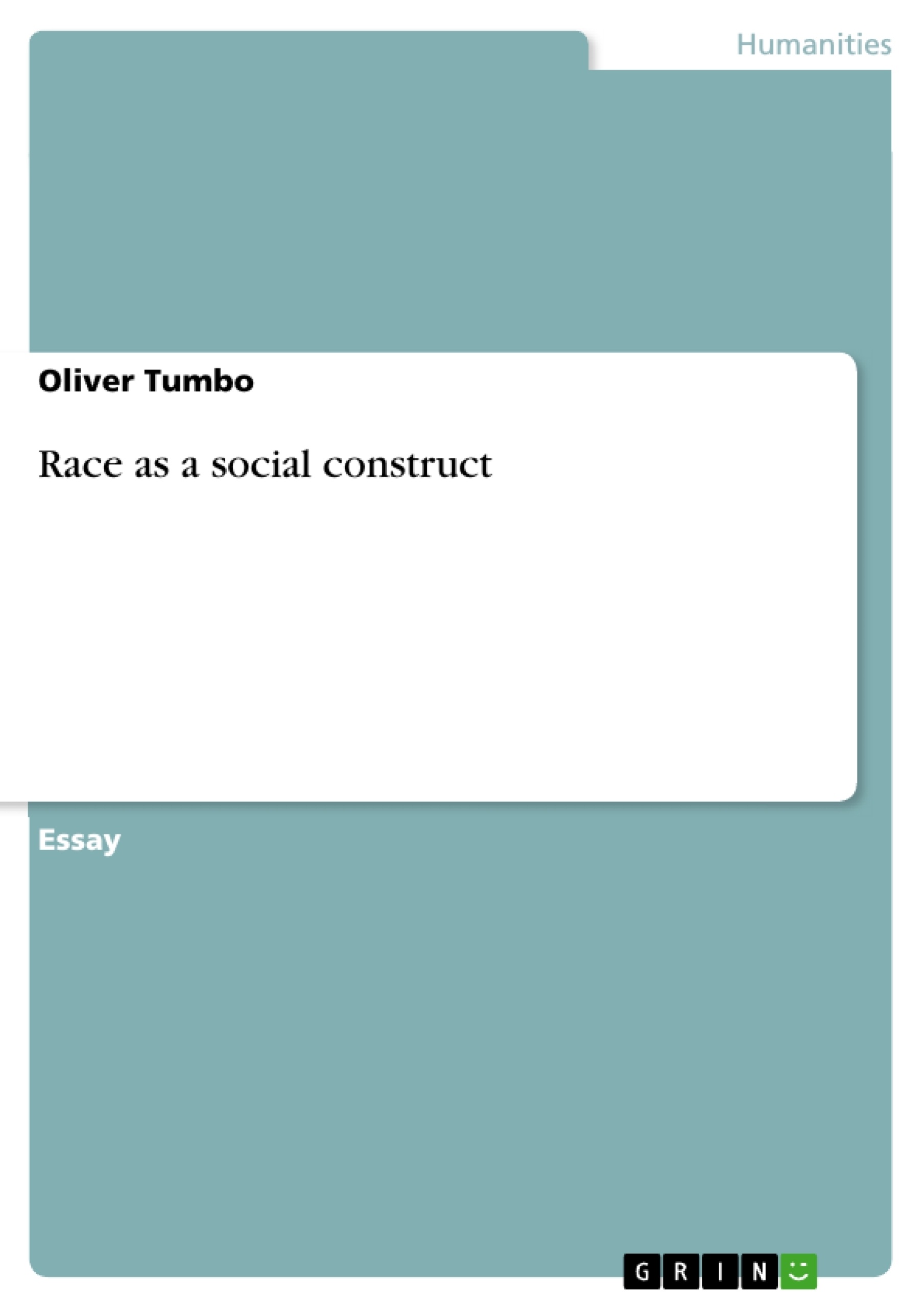As many social anthropologists have observed, daily human lives have been defined by race irrespective of whether they agree with the analogy or not. The world is seen through the lens of African, Arab, Caucasian, Mexican or other tags that daily inundate our televisions. How we label others is very critical on how important decisions are made concerning their lives. The lenses through which we define others determine who to hire, who gets the supervisory role, which gets the menial jobs and defines who lives in which neighborhood. Human beings deny it all the time but with demonstrations in the United States cities tagged along the lines of “black lives matter,” the social construct of race has not left human beings.
Table of Contents
- Race as a Social Construct
- The Idea of Race and its Fallacy
- Historical Perspectives on Race
- The Enlightenment and the Concept of Race
- Race in the United States
- The Social Construct of Race in a Global Context
Objectives and Key Themes
This text explores the social construct of race, analyzing its historical evolution and examining its impact on society, particularly in the United States. It aims to deconstruct the notion of race as a biological reality, highlighting its origins in social classifications and power dynamics.
- The historical development of the concept of race
- The role of scientific discourse in shaping racial categories
- The social, political, and economic consequences of racial classifications
- The persistence of racial inequality in contemporary societies
- The challenges and opportunities for dismantling racial hierarchies
Chapter Summaries
- This chapter introduces the concept of race as a social construct, emphasizing the lack of biological basis for racial categories. It argues that racial classifications are socially constructed and used to maintain power structures.
- This chapter critically examines the historical evolution of the idea of race, tracing its origins in ancient societies and exploring its role in shaping social hierarchies. It discusses the emergence of scientific racism and its impact on society.
- This chapter explores the influence of the Enlightenment on the concept of race, analyzing how scientific advancements contributed to the development of racial classifications. It examines the work of influential figures like Linnaeus and Buffon.
- This chapter focuses on the history of race in the United States, tracing the development of racial inequality from colonial times to the Civil Rights Movement. It explores the impact of slavery, segregation, and Jim Crow laws on American society.
- This chapter expands the discussion on the social construct of race beyond the United States, examining examples from other societies, including Nazi Germany. It highlights the universal nature of racial classifications as tools of oppression.
Keywords
This text examines the social construct of race, focusing on key themes such as racial classification, power structures, scientific racism, historical development, social inequality, and the struggle for racial justice.
- Quote paper
- Oliver Tumbo (Author), 2016, Race as a social construct, Munich, GRIN Verlag, https://www.grin.com/document/428085




